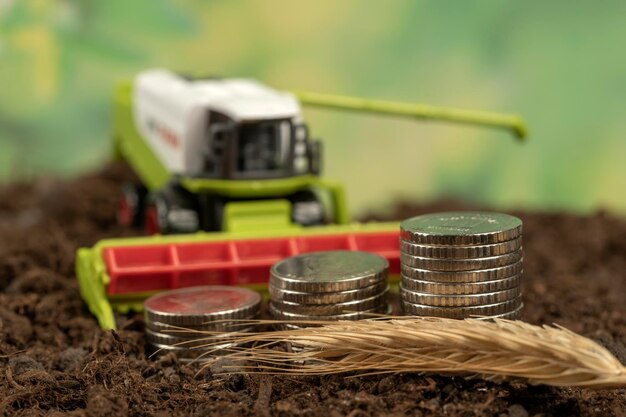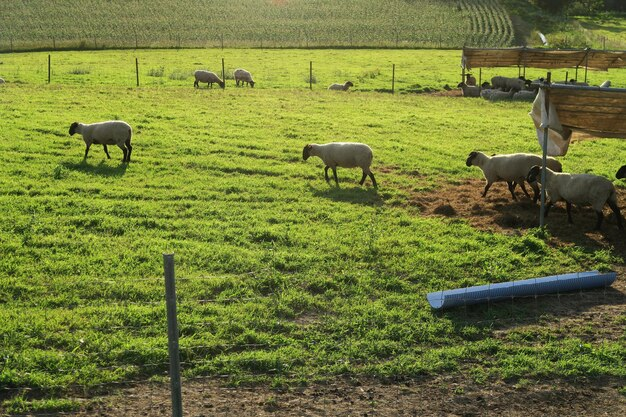Understanding how much does a farm appraisal cost is crucial for any farm owner, prospective buyer, or agribusiness investor. This article will delve into the various factors that affect farm appraisal costs, provide real data and prices, and also include a useful FAQ section for quick reference.
Factors Influencing Farm Appraisal Costs

When asking how much does a farm appraisal cost, it’s essential to consider several factors that can significantly influence the final price. Here’s a breakdown:
Size and Complexity of the Farm
The size and complexity of a farm are fundamental factors that substantially impact appraisal costs. Smaller farms, typically those with less than 50 acres, tend to have lower appraisal costs due to their inherent simplicity. On the other hand, larger farms, exceeding 50 acres, entail more intricate operations, often involving diverse crops, livestock, and specialized equipment. This complexity results in a higher level of scrutiny during the appraisal process, which, in turn, leads to higher appraisal expenses.
| Farm Size | Appraisal Cost |
| Small (<50 acres) | Lower cost |
| Large (>50 acres) | Higher cost |
Small farms are typically family-owned or operated as niche businesses, characterized by their simplicity, which results in reduced time and effort during the appraisal process, ultimately leading to cost savings. Conversely, large farms, boasting extensive acreage and engaging in diverse agricultural activities, necessitate a more exhaustive assessment. This comprehensive evaluation involves detailed analysis of crops, livestock, infrastructure, and machinery, contributing significantly to higher appraisal costs.
Location
The geographical location of the farm is a crucial determinant of appraisal costs. Farms situated in rural areas, with fewer urban amenities and lower land values, may have lower appraisal expenses. Conversely, farms located in close proximity to urban centers often face higher appraisal costs due to several reasons:
- Land Value: Land near urban areas tends to have higher market values, leading to increased appraisal expenses.
- Development Potential: Farms near urban centers may also have potential for development, which necessitates additional assessments and can further raise appraisal costs.
| Location | Appraisal Cost |
| Rural | Lower cost |
| Urban Proximity | Higher cost |
It’s important to note that regional variations also play a role. For instance, a farm in an agricultural hotspot might have higher appraisal costs compared to a similar-sized farm in a less agriculturally competitive region.
Type of Appraisal
The type of appraisal requested is a significant factor in determining costs. There are primarily two categories of appraisals:
- Limited Appraisal: This type of appraisal is less detailed and, consequently, less expensive. It may focus on specific aspects of the farm, such as the land’s market value, without delving deeply into other components.
- Full Appraisal: A full appraisal is a comprehensive assessment that involves a thorough examination of all aspects of the farm, including its physical condition, productivity, infrastructure, equipment, and potential for income generation. This comprehensive approach naturally leads to higher appraisal costs.
| Type of Appraisal | Appraisal Cost |
| Limited | Lower cost |
| Full | Higher cost |
Limited appraisals are a cost-effective option primarily employed for basic property valuation purposes. They concentrate on specific aspects or a narrower scope of the farm, making them a more budget-friendly choice. On the other hand, full appraisals are often sought after for comprehensive farm assessments, estate planning, or intricate property transactions. These evaluations entail extensive research and on-site assessments, which naturally result in higher associated costs.
Purpose of Appraisal
The purpose for which the appraisal is being conducted is another critical factor influencing costs. Farms undergo appraisals for various reasons, each requiring a different level of analysis:
- Loan Collateral: When a farm is being appraised as collateral for a loan, the primary focus is on determining its market value. These appraisals tend to be more straightforward and may involve fewer components, resulting in relatively lower costs.
- Estate Planning: Appraisals conducted for estate planning purposes require a comprehensive assessment. In such cases, the appraiser must evaluate not only the current market value of the farm but also its potential income-generating capacity, replacement cost, and other intricate factors. This complexity can substantially increase appraisal costs.
- Purchase/Sale: When a farm is being appraised for a purchase or sale, the appraisal process may involve a detailed assessment of market value, operational aspects, infrastructure condition, and potential for future income. The level of analysis required for such transactions can drive up appraisal expenses.
Additional Features
Farms are not homogenous properties; they often include additional features such as equipment, livestock, and buildings. The presence of these features can significantly influence appraisal costs as they introduce complexity and necessitate more detailed analysis.
- Equipment: Farms with a substantial inventory of machinery and equipment require the appraiser to assess the condition, age, and market value of these assets. This adds an extra layer of analysis to the appraisal process and increases costs.
- Livestock: For farms involved in animal husbandry, the appraisal may extend to the evaluation of the livestock. Assessing the health, breed, and market value of animals demands additional time and expertise, contributing to higher appraisal expenses.
- Buildings: The condition, age, and functionality of farm buildings, such as barns, silos, and storage facilities, are crucial factors in the appraisal process. Appraisers must conduct thorough inspections and evaluations, which can elevate appraisal costs.
Farm Appraisal Costs: Factors and Breakdown

Farm appraisal costs are influenced by various factors, including farm size, location, complexity, and the scope of the appraisal. Understanding these factors is crucial when estimating the cost of appraising a farm. On average, the typical range for farm appraisal costs falls between $2,000 and $5,000. However, delving deeper into this range reveals a more intricate breakdown.
Farm Size
The size of the farm is one of the primary determinants of appraisal costs. Farms come in a wide range of sizes, from small family-owned plots to vast commercial operations. Let’s explore how farm size impacts appraisal costs:
- Small to Medium Farms (Less than 50 Acres): Typically, farms spanning less than 50 acres often have appraisal costs ranging from approximately $2,000 to $3,500. These smaller and less complex operations tend to incur relatively lower appraisal expenses. The advantage here is that aspiring farm owners interested in acquiring smaller properties can benefit from cost-effective appraisals.
- Large Farms (50 Acres and Above): Farms exceeding 50 acres, especially those with additional complexities like extensive livestock holdings, specialized equipment, or proximity to urban areas, can expect higher appraisal costs. In such cases, appraisal expenses may exceed $4,000, and the final cost can vary widely depending on the unique characteristics of the farm. These complexities often require more time and expertise from the appraiser, which contributes to the higher overall cost.
Location
The geographical location of a farm plays a significant role in determining appraisal costs. Farms situated in different regions may have varying cost structures due to factors such as soil quality, climate, and local market conditions.
- Rural vs. Urban Locations: Farms located in rural areas generally tend to have lower appraisal costs compared to those situated in urban or suburban regions. This difference is primarily because urban farms often face increased scrutiny and have higher land values.
- Regional Disparities: Regional disparities can also impact appraisal costs. States or areas with more competitive agricultural environments and higher land values, like California, may lead to higher appraisal expenses, as seen in our case study below.
Complexity and Scope
The complexity and scope of the appraisal also heavily influence the cost. Farms with unique features, specialized equipment, or multiple revenue streams may require a more detailed and comprehensive appraisal, which can increase the overall cost.
Farm Appraisal Case Studies
To illustrate how real-world factors influence farm appraisal costs, let’s examine two case studies:
- 40-acre Farm in Iowa: In this scenario, a 40-acre farm located in Iowa underwent an appraisal. Given its modest size and rural location, the appraisal cost was approximately $2,500. Iowa’s agricultural landscape, known for its fertile soil and conducive farming conditions, contributed to the relatively lower cost of this appraisal. Additionally, the absence of significant complexities or unique features played a role in keeping the expenses within this range.
- 120-acre Farm in California: California, renowned for its diverse agriculture and higher land values, presents a different appraisal cost dynamic. In this case, a 120-acre farm located in California underwent an appraisal, resulting in an appraisal cost of about $4,800. The larger size of the farm, coupled with California’s competitive agricultural environment, led to increased appraisal expenses. Additionally, the state’s proximity to urban centers and potential for development contributed to the higher cost.
Calculating Your Appraisal Cost
To get a rough estimate of how much does a farm appraisal cost for your specific situation, consider the following computation:
Base Rate: A Starting Point
Initiating the appraisal cost estimation process involves identifying a base rate, which is typically around $2,000. This base rate serves as a foundational figure for your appraisal cost calculation. Keep in mind that the base rate can vary based on factors such as the appraiser’s expertise and regional pricing dynamics.
Add-Ons: Factoring in Farm-Specifics
Farm appraisal costs are not fixed; they depend on various farm-specific factors:
- Additional Acreage: For farms that exceed the typical size, it’s essential to factor in the additional acreage. Larger farms require more time and effort for appraisal due to the extensive land area, which naturally contributes to higher expenses.
- Features and Assets: Consider the presence of additional features and assets on your farm. These can include specialized equipment, livestock, storage buildings, and more. Each feature demands a more detailed analysis during the appraisal process, adding to the overall cost.
- Specific Appraisal Requirements: The purpose of your appraisal greatly influences the depth of analysis required. For instance, appraisals for loan collateral may focus more on the property’s market value, while estate planning appraisals require a comprehensive assessment involving the valuation of assets for inheritance purposes. Complex appraisal requirements can lead to increased costs.
Location Factor: Geographic Considerations
The geographic location of your farm plays a pivotal role in determining appraisal costs:
- Regional Variances: Different regions may exhibit distinct appraisal cost dynamics. Areas with competitive agricultural markets or proximity to urban centers often have higher appraisal costs due to increased land values and potential for development.
- Local Appraiser Rates: The rates charged by local appraisers can also significantly impact appraisal costs. In regions where appraisers have higher fees, the overall cost of the appraisal will naturally be greater.
- Transportation Costs: If the farm is located in a remote area, there may be additional costs associated with the appraiser’s travel to the site, which should be factored into the estimation.
Final Calculation: Precision in Estimation
To arrive at a more precise estimated appraisal cost, combine all these factors using the following formula:
| Estimated Appraisal Cost = Base Rate + Add-Ons + Location Factor |
This final calculation provides you with a more accurate estimate of what you can expect to pay for your farm appraisal, tailored to your specific situation.
Conclusion
How much does a farm appraisal cost is a question with many variables. From the farm’s size and location to its unique features and the purpose of the appraisal, numerous factors play a role in determining the final cost. By understanding these factors and preparing accordingly, farm owners and buyers can get a more accurate estimate of appraisal costs and plan their finances effectively.
Remember, a farm appraisal is an investment in understanding the true value of your agricultural asset. Whether for sale, purchase, or estate planning, knowing how much does a farm appraisal cost is the first step towards making informed decisions in the agricultural sector.
FAQ
Q1: Can the farm location significantly change the appraisal cost?
A1: Yes, location can greatly affect how much does a farm appraisal cost. Farms in areas with higher real estate values or development potential typically have higher appraisal costs.
Q2: Does the type of farm (e.g., dairy, crop, vineyard) affect the cost?
A2: Absolutely. Different types of farms require different expertise and analysis depth, impacting how much does a farm appraisal cost.
Q3: Are there any ways to reduce farm appraisal costs?
A3: One way to potentially reduce costs is by having well-organized records and easy access to all necessary farm information, which can streamline the appraisal process.
Q4: How often should a farm be appraised?
A4: This depends on the purpose of the appraisal. For estate planning, every 5-10 years is common. For sale purposes, an appraisal should be current, typically within a year.
Q5: Do farm improvements like irrigation systems affect appraisal costs?
A5: Yes, improvements like irrigation systems, buildings, or specialized equipment can increase how much does a farm appraisal cost because they require additional analysis.



